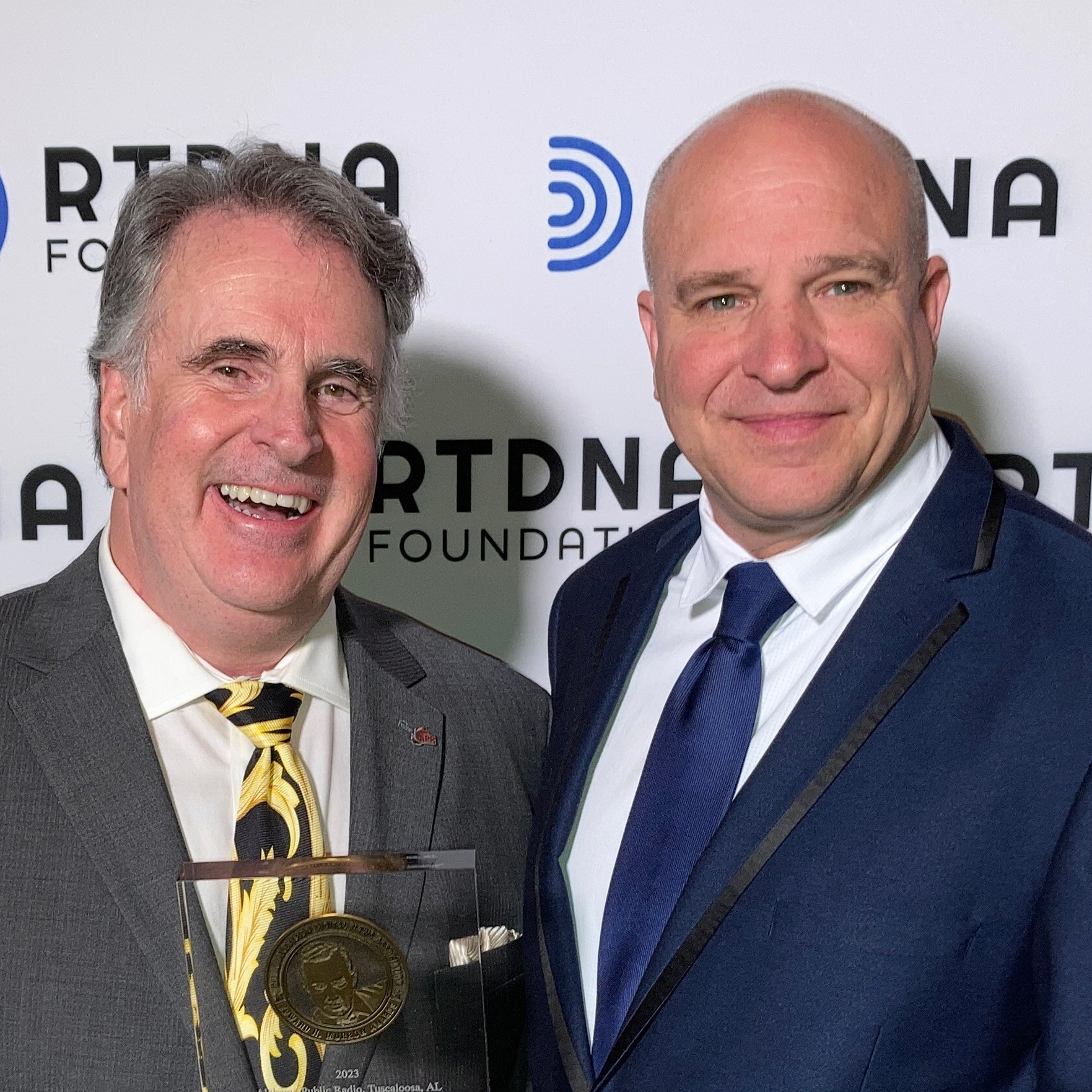TUSCALOOSA, Ala. — Alabama Public Radio (APR) has won national recognition for its radio and web news series, “No Stone Unturned: Preserving Slave Cemeteries in Alabama.”
APR won Best Feature from the National Association of Black Journalists (NABJ) on August 5, an award NABJ calls its “Salute to Excellence.” A month later, APR won the Edward R. Murrow award for the Best News Series in Small-market Radio from the Radio Television Digital News Association (RTDNA).
Regarding the awards, APR news director Pat Duggins said, “I’m gratified to know that Alabama Public Radio’s student interns are seeing us recognized with awards. It exposes them to a higher level of journalism, which helps them seek employment following graduation.”
He noted APR alumni are currently working in New York, Los Angeles, Atlanta, Miami, San Francisco and Washington, D.C.
For the series, APR surveyed a 200-year-old burial yard in Northport, Alabama, known as Old Prewett Slave Cemetery. John Welch Prewett, a plantation owner, established the two-acre cemetery in the late 1800s. Prewett, one of the richest men in Alabama, once owned around 300 enslaved people.
Using the first-ever ground-penetrating radar scan of the cemetery, Duggins said the team realized the cemetery’s level of disrepair.
“We discovered 40 unknown graves,” he said. “What we found was more than we ever could have imagined.”
Duggins approximated that there were around 435,000 enslaved people in Alabama before the Civil War, but there is little record of them before the Emancipation Proclamation. After the 13th Amendment passed, many former slaves either moved north or lived out their lives in the South.
Following their descendants, APR followed current efforts to preserve the disappearing burial grounds of former enslaved people. “Only a handful of tombstones and faded burial markers remain,” Duggins said.
The team also visited the 20th-anniversary workshop of the Alabama Cemetery Preservation Alliance, which cleans tombstones and repairs cemetery gates. There, APR met with Olley Ballard of Huntsville, searching for her enslaved great grandfather’s burial site, possibly under a municipal parking deck.
“This situation isn’t limited to the South,” Duggins said. “The discriminate public knowledge of former slave cemeteries leaves many people unable to trace their ancestry or preserve their family’s burial sites.”
From there, APR traveled to Bridgewater Township, New Jersey, to witness ongoing efforts to preserve the Prince Rodgers Slave Cemetery, a plot set between two modern homes. Duggins said around 11,000 people were enslaved in New Jersey in 1776, the year the Declaration of Independence was signed.
The series ended with a frank discussion on the difficulties of preserving slave cemeteries and acknowledging slavery at a time when many appear unwilling to talk about race.
“It opened my eyes to the histories Black and white Americans have experienced,” Duggins said. “They’re very different and point out the ongoing injustice of slavery in the U.S.”
At the NABJ’s 2023 convention in Birmingham, Alabama, APR was honored alongside the Chicago Tribune, NBC, ESPN, NPR, MSNBC, and the Canadian Broadcasting Company, as well as reporter Scott Pelley’s “Grave Injustice” for 60 Minutes.
Pat Duggins is the news director for APR. Formerly covering NASA for National Public Radio (NPR), he and the APR newsroom have earned close to 170 awards for excellence in journalism, including three other NABJ Salutes to Excellence.
